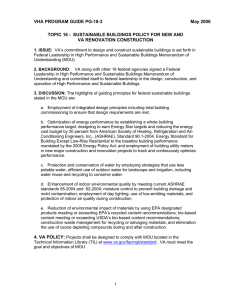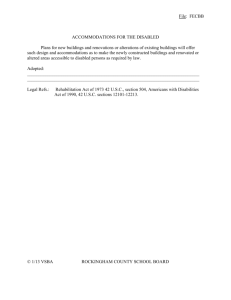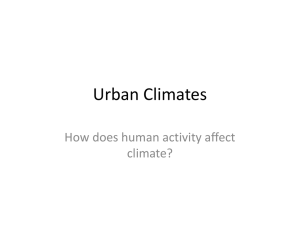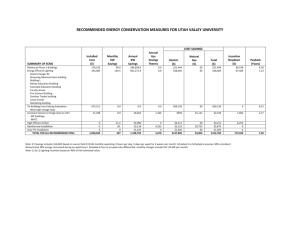TITRE
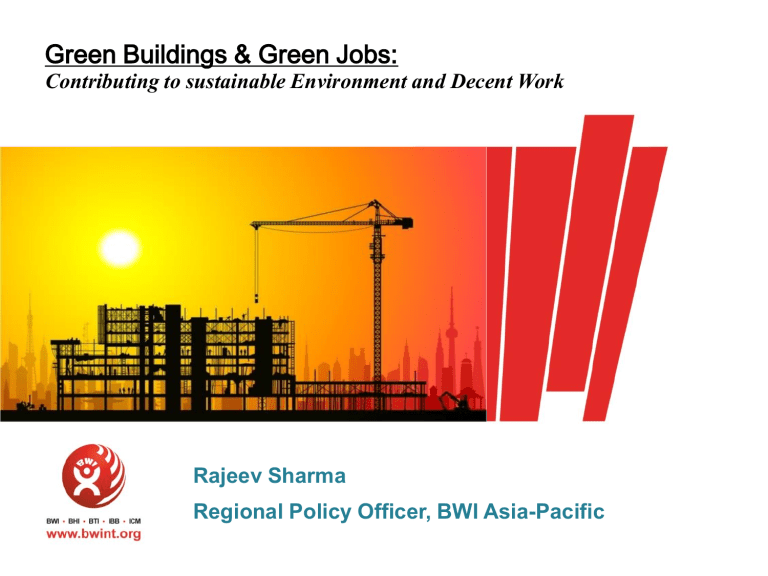
Green Buildings & Green Jobs:
Contributing to sustainable Environment and Decent Work
Rajeev Sharma
Regional Policy Officer, BWI Asia-Pacific
Why Green Buildings???
•
The building sector accounts for 30-40% of Co2 emissions
•
In the climate change debate, the green buildings and green jobs are increasingly viewed as part of a global response aimed at reduction of GHGs (Green House
Gases) and a vital part of the various countries mitigation strategy.
•
Green Buildings (also known as green construction or sustainable building) signifies a structure and using process that is environmentally responsible and resource-efficient throughout a building's life-cycle: from siting to design, construction, operation, maintenance, renovation, and demolition.
Why Green Buildings???
•
Green Building can result in long term savings via:
Energy & Lighting Efficiency
Water Efficiency
Materials Efficiency
Employee Health
Construction & Debris
Green Jobs: Building Sector
•
“ Green jobs” contributes to preserving or restoring the quality of the environment.
•
Green jobs need to be decent work, i.e. good jobs which offer adequate wages, safe working conditions, job security, reasonable career prospects, and worker rights. A job that is exploitative, harmful, fails to pay a living wage, and thus condemns workers to a life of poverty can hardly be hailed as green .
•
Green jobs span a wide array of skills, educational backgrounds, and occupational profiles. Concerning the Building sector, as per a joint report - many existing jobs (especially such as plumbers, electricians, and construction workers) will simply be transformed and redefined as day-to-day skill sets and work methods
`Greening’ of the Building Sector:
Role of Trade Unions
•
Ensure the National / State Building Codes and
Policies in their respective countries are aligned with Green construction to promote energy conservation and address environmental concerns.
•
The Building codes / policy could be the driving force behind green building and stimulating local economic development in the green building sector and this could include - regulations, standards, incentives, subsidies, tax concessions.
•
Trade Unions should prevail upon their respective
National Governments to include environmental and social clauses in all tender documents for public works.
`Greening’ of the Building Sector:
Role of Trade Unions
•
For new large constructions, certification could be made mandatory. In the United
States and in a host of other countries worldwide, LEED certification is the recognized standard for measuring building sustainability. ( )
•
Dialogue and regular consultations with all the stakeholders including employers. Due emphasis be laid on Skills Training
(redefining and readjusting / upgrading existing skills) and also integrating OHS into
`green jobs’ for the members / workers.
Singapore: Sustainable Construction
Initiative
In Singapore, the Building and Timber Union
(BATU) and the Singaporean government have embarked on a common objective of
“sustainable construction” and a $15 million
Sustainable Construction Capability
Development Fund has been set up for:
Adoption of recycled materials &
Environmental friendly construction process. A tripartite committee - Economic Strategies
Committee (ESC) has been created and among other recommendations of the ESC has been the adoption of better technology.
India: Union signs MOU with the
Larsen & Toubro on Skills Training
MOU signed btw.
BWI affiliate Bandhkam
Mazdoor Sangathan (BMS) from the Western
Indian State of Gujarat with the Construction Skills
Training Institute (CSTI) of Larsen and Toubro
(L&T) in India on skills training that aims to improve wages and increase employability of workers plus gives an exposure to the new / evolving technology.
Post-training they get employed at the L&T worksite.

